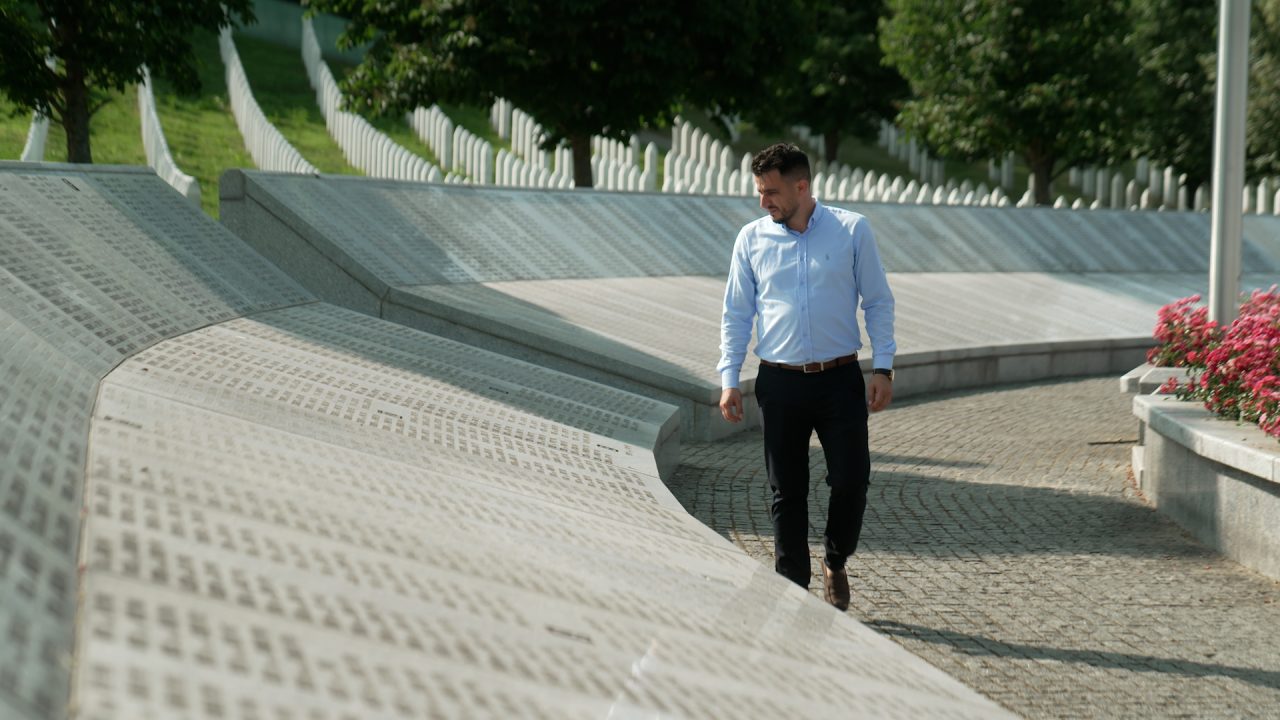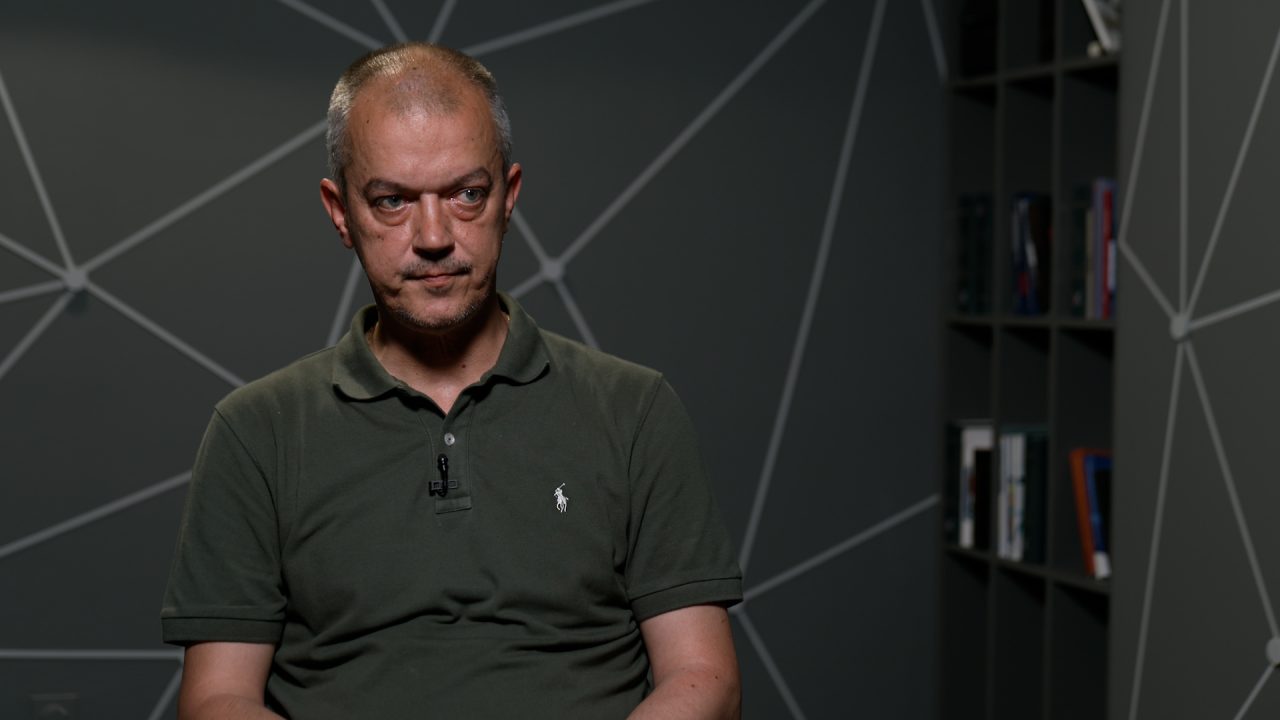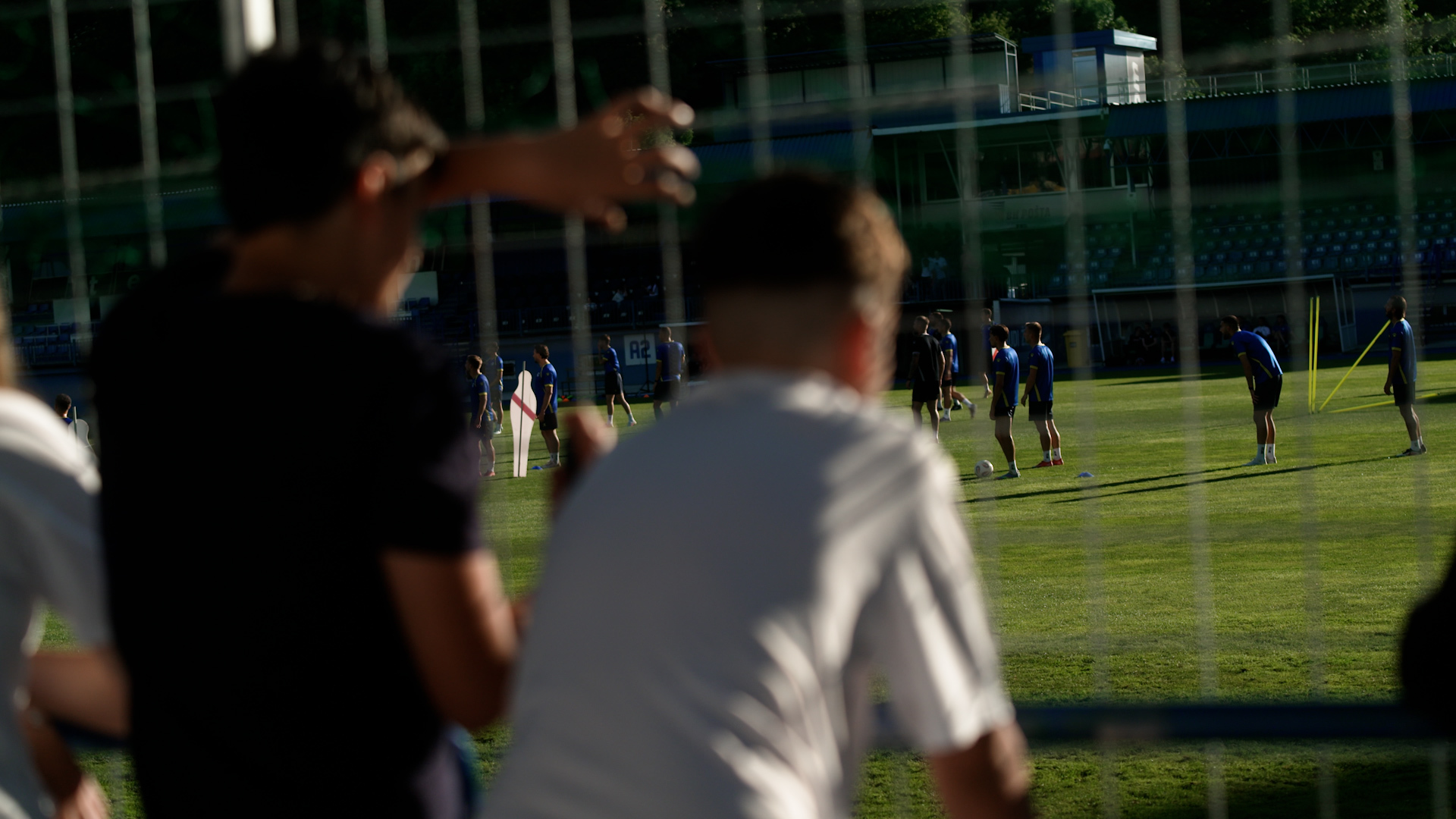This post is also available in: Bosnian
A recording of football fans chanting of the name of Ratko Mladic at a match between FK Radnik from Bijeljina and Borac from Banja Luka, which took place in Bijeljina on May 18 was recently shared on Facebook fan pages and pro-Russian Telegram channels.
Mladic, wartime commander of the Main Headquarters of the Republika Srpska Army, VRS, was sentenced to life in prison for crimes committed in Bosnia and Herzegovina. Glorifying convicted war criminals is illegal.
But nearly a month afterwards, the Football Association refuses to answer whether the supporters or the club have been sanctioned for hailing Mladic from the terraces.
Detektor has learned, although this has not been officially confirmed, that the club has been punished for the behaviour of its supporters, but for other chants, not the one glorifying Mladic.
Coming after numerous other similar incidents, this demonstrates that the Football Association has still not stopped the denial of genocide and glorification of war criminals in the stands, although these actions were prohibited nearly four years ago.
According to the Football Association’s disciplinary code, public insults to human dignity based on race, colour, nationality, religion and language, extremist and ideological propaganda, as well as symbols or gestures of political nature are sanctionable.
Fines of up to 30,000 Bosnian marks, orders to hold matches in empty stadiums, a ban on fans travelling to away matches, suspensions for players and bans from holding office are among the potential sanctions.
The Football Association twice refused to talk to Detektor’s journalists about the issue. Dinko Ceko, the association’s spokesperson, instead directed us to check the official website for reports about the Disciplinary Commission imposing sanctions on clubs.
One of the most recent reports states that Radnik and Borac were punished for using fireworks and for racism and other forms of discrimination. The report does not specify which offence the supporters of the two clubs committed. Analysing other reports from the past two seasons, a large number of clubs have been punished for this offence, but the specific reasons were not explained.
Radnik confirmed unofficially that the club was punished for insulting the state, as well as for displaying a banner with the slogan ‘Kosovo is Serbia’, but not for glorifying Ratko Mladic.
Radnik’s director Goran Janjic declined to speak to Detektor’s journalists.
“These are questions I have already answered, so I think there is no need for me to speak about the same topic twice. I didn’t want to avoid anything, but honestly, my goal is not to appear in the media in this way,” Janjic said.
Speaking to Detektor previously, Janjic stated that because he was hoping for a positive result in the match, he did not notice what was happening on the terraces but was simply focused on the score, as it was a very important match for Radnik in the club’s fight to stay in the league.
Over the past few years, Radnik supporters have repeatedly glorified convicted war criminals. Detektor can confirm that Borac also went unpunished when its supporters chanted the name of Ratko Mladic at a match against Zeljeznicar in Banja Luka in October last year.
Goran Kosoric, president of the Disciplinary Commission of the Football Association, arrived for an agreed meeting with Detektor journalists in front of the association’s building, but he then went to his office, from where he informed us by phone that he could not talk because he did not have authorisation to do so.
Sanel Konjhodzic, editor of the sports section of newspaper Oslobodjenje, believes the problem is that the regulations governing the issue have not been clearly defined by the Association, and officials are cleverly exploiting this.
“For me, it’s a very clear-cut situation in which we all sort of play dumb, and playing dumbest are the officials who should be registering all that and forwarding it to the authorities responsible for making decisions in such situations, such as the Disciplinary Commission,” Konjhodzic said.
Despite the regulations, there are no consequences for such behaviour by fans.
“[The options are] giving a warning to spectators, and then repeating the warning, emptying the stands, penalising people and so on. However, you will hardly ever see that, and you can go back to last year when it was reported somewhere that a club was held to account for that,” Konjhodzic said.
In his annual analysis of genocide denial incidents, Edin Ikanovic of the Srebrenica Memorial Centre recorded various cases at stadiums in Bosnia and Herzegovina and the wider region. He cites the examples of Belgrade clubs Red Star and Partizan, whose supporters, known as the Delije and Grobari respectively, often chant the name of Ratko Mladic on the terraces. It can be seen in videos on YouTube that the chanting most often happens during matches played in Novi Pazar, an area of Serbia with a significant Bosniak population.
“These were mostly messages glorifying genocide and calling for a new genocide, with slogans such as ‘Knife, Wire, Srebrenica’, as well as glorifying Ratko Mladic. The biggest problem is that this comes from sports arenas, where the game and fair play should be to the fore, and where there are significant amounts of young people present at those stadiums, chanting this together with adults and the people who are sending such messages,” Ikanovic said.

Edin Ikanovic at the Srebrenica Memorial Center. Photo: Detektor
According to Hague judgements, more than 7,000 men and boys were killed in the Srebrenica genocide in July 1995. The bodies of some of them were found in several mass graves. Around 1,000 people from this area are still missing.
Even though genocide denial was banned under the Criminal Code three years ago, and UEFA does not tolerate the glorification of war criminals at stadiums, the Football Association of Bosnia and Herzegovina does not punish deniers using penalties that would deter similar incidents in the future. As well as in Banja Luka and Bijeljina, Ratko Mladic’s name has been chanted at stadiums in Doboj and Prijedor in recent years, but there have been no sanctions. The glorification of wartime commanders also happens in the Federation entity.
Vico Zeljkovic, president of the Football Association, and Adnan Dzemidzic, its general secretary, did not respond to requests for an interview.
In December last year, supporters of Zrinjski chanted the name of Slobodan Praljak. Praljak was one of six officials of so-called Herzeg-Bosnia wartime statelet who were convicted of committing crimes during the war in Bosnia and Herzegovina. After the announcement of the final verdict in 2017, Praljak took poison in the Hague Tribunal’s courtroom and subsequently died.
Zrinjski’s representative Mario Pandza declined to talk about the glorification of war criminals on the terraces.
The State Prosecution has confirmed that, among the cases covering the criminal offence of inciting national, racial and religious hatred, discord, and intolerance, there are recorded events related to football games and fan groups.

Sanel Konjhodžić, editor of the sports column in Oslobođenje
But the prosecution did not provide any details or agree to an interview. When further asked about the specific matches at which these incidents happened, the prosecution responded that some of the events were covered in cases currently being processed.
Konjhodzic believes that the Association and the Prosecutor’s Office must engage more actively in the battle against the denial of war crimes and the glorification of war criminals.
“I think that people who have survived, and I am unfortunately one of those who lost immediate family members, do not deserve to have more salt rubbed in their wounds week after week from sports stadiums and arenas where people compete and where we swear by fair play,” Konjhodzic said.
In Ikanovic’s opinion, a recent indictment and first instance verdict convicting Vojin Pavlovic, who was sentenced to two-and-a-half years in prison for justifying genocide and glorifying Ratko Mladic, shows how criminal punishment can deter genocide denial and the glorification of war criminals at football stadiums.
“Vojin Pavlovic is the best example for the deniers. From the moment the case against Vojin Pavlovic began at the Court of Bosnia and Herzegovina, he has never again commented on or denied the genocide in public,” Ikanovic pointed out.
“This is the only solution, the only way to put deniers in a situation in which they will stop commenting on and denying the genocide, at least publicly,” he added.
